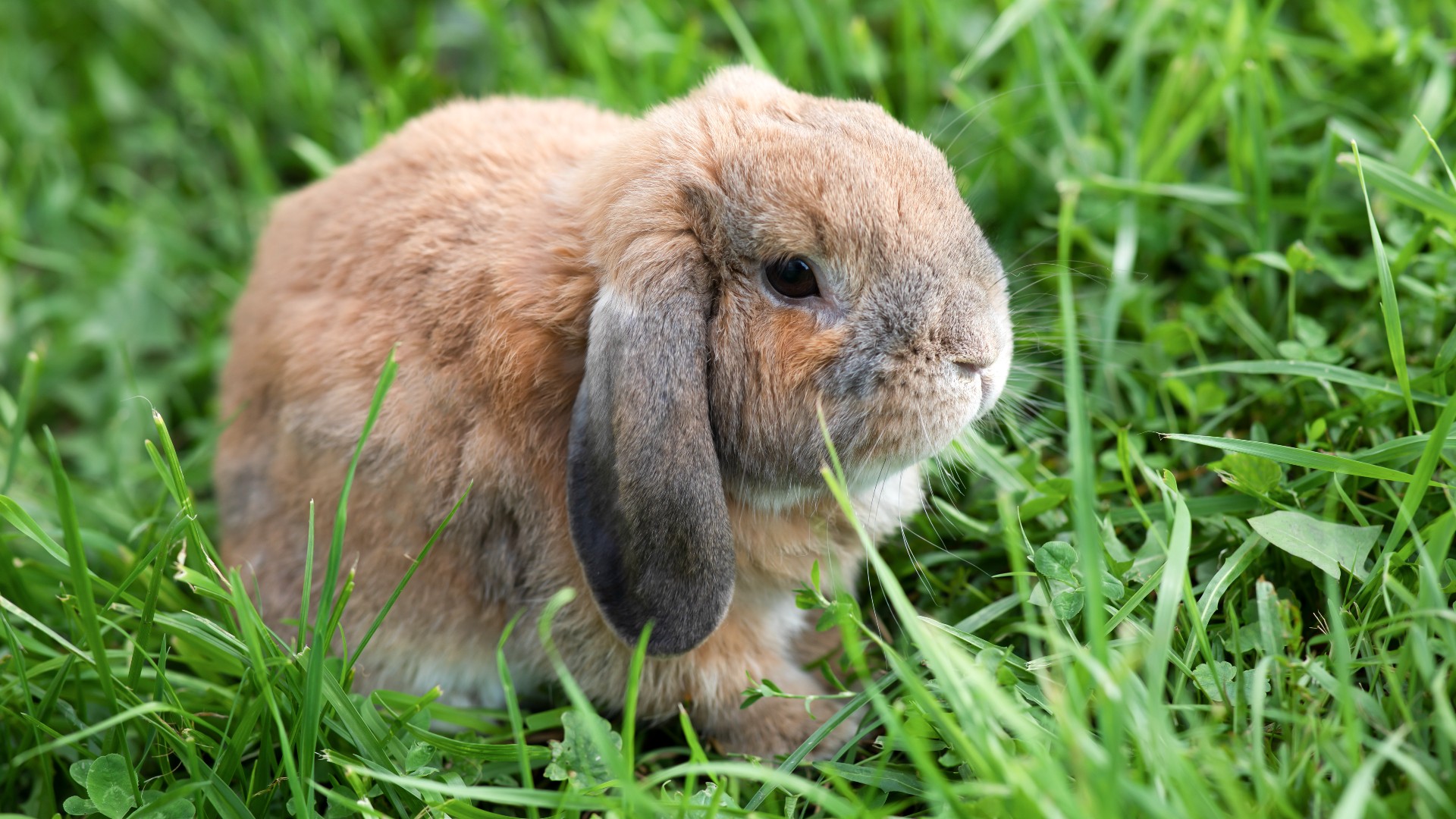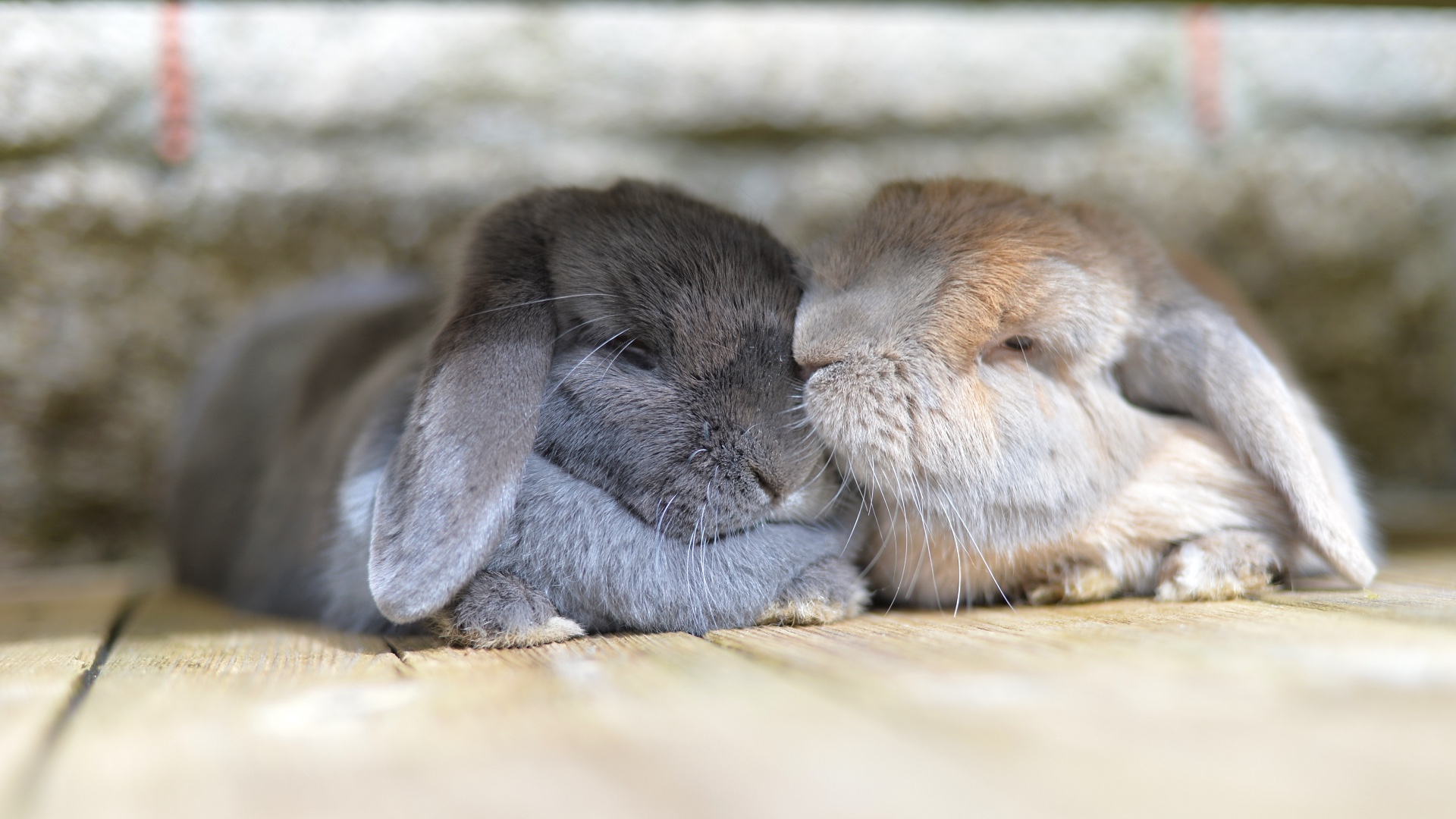A guide to owning Mini Lop rabbits
The Mini Lop rabbit is a small breed, with ears that lop down either side of the head

The Mini Lop rabbit is a breed that is recognized by the American Rabbit Breeders Association (ARBA) in the USA. The Miniature Lop is recognised by the British Rabbit Council (BRC) in the UK, but is often referred to as a Mini Lop. They are very similar in appearance, so, for this feature, the term Mini Lop is used to describe both. The breed was first recognised in Germany in 1973 and is a small breed, with ears that lop down either side of the head. They are available in a variety of colors and patterns.
Mini Lop rabbit: Breed characteristics
Mini Lops are small rabbits and should weigh between 1.5-1.6kg (3.4-3.8lb) when fully grown. Small rabbits tend to have a longer life expectancy than larger rabbits (similar to the life expectancy of small versus large breeds of dog), and a Mini Lop’s life expectancy is in line with other small breeds – around 8-11 years, although some may live longer than this.
The temperament of the Mini Lop is not defined by their breed alone. Their early socialization, handling, and experiences of people – as well as those later in life – will help develop their character, temperament, and interactions with humans, so it is important socialization is undertaken at an early age and continued during the rabbit’s life.
Mini Lop rabbit: Care tips
Despite being small rabbits, Mini Lops still need a large enclosure to live a happy and fulfilling life. This can be outdoors, in one of the best rabbit hutches, or indoors where they will happily live as house rabbits.
Whether you raise your rabbit largely outdoors or decide to invest in one of the best indoor rabbit hutches and let them live life close to your side, it’s important to remember that even small rabbits require at least 60 square foot of floor space, with plenty of the best rabbit toys, tunnels, places to hide and other forms of enrichment.
They should be neutered and kept in compatible pairs (male and female is often the best combination) and annual vaccinations and regular health checks are a must. Mini Lop rabbits can be prone to ear and dental disease, so pet insurance is highly recommended – buy a policy when they are fit and healthy, so no exclusions are placed on it.
This risk of dental disease makes it even more important that their diet consists of at least 85% grass and hay, in addition to a small amount of a high quality pellet (approx. 1 tablespoon per kg of bodyweight per day) and a selection of fresh greens and herbs, the size of their head each day. Any changes in diet must be done gradually over at least two weeks, as for any rabbit kept as a domestic pet.
Get the best advice, tips and top tech for your beloved Pets
While Mini Lops can make wonderful pets, you’ll need to make sure you have the time to give them a thorough grooming once a week, increased to daily during moulting season. Check out our guide to rabbit grooming for tips on how to do this.

Mini Lop rabbit: Health concerns
Mini Lops seem to be predisposed to some health problems that tend to arise due to their lop ears and flattened face. Being Brachycephalic often causes their teeth to misalign (as their mouth is squashed, meaning there is not enough room for the teeth to sit properly).
Rabbit’s teeth grow throughout their life and if their teeth cannot wear properly, they will overgrow, causing the rabbit pain and difficulty eating. When this happens, the rabbit needs veterinary treatment. Dental treatment is highly likely to need to be repeated throughout the rabbit’s life, as the teeth keep growing, and can lead to further problems with facial abscesses, which can significantly shorten life expectancy.
Another potential health concern is their lop ears. The lop and kink in their ear canal creates an environment where wax accumulates, unable to find a natural way out of the ear. Ear base abscesses and infections, which often don’t show any outward signs, are often seen in lop eared rabbits. These can be serious and life-threatening.
Conclusion
Mini Lop rabbits are very cute in appearance, but serious consideration needs to be made before choosing one as a pet. Undoubtedly, they can make wonderful companions, but their potential health concerns and the welfare implications these can have must be considered.
Claire currently works in Kettering as a Head Nurse in a practice with a high rabbit caseload, as well as frequently lecturing and writing on rabbits to both veterinary professionals and owners.

